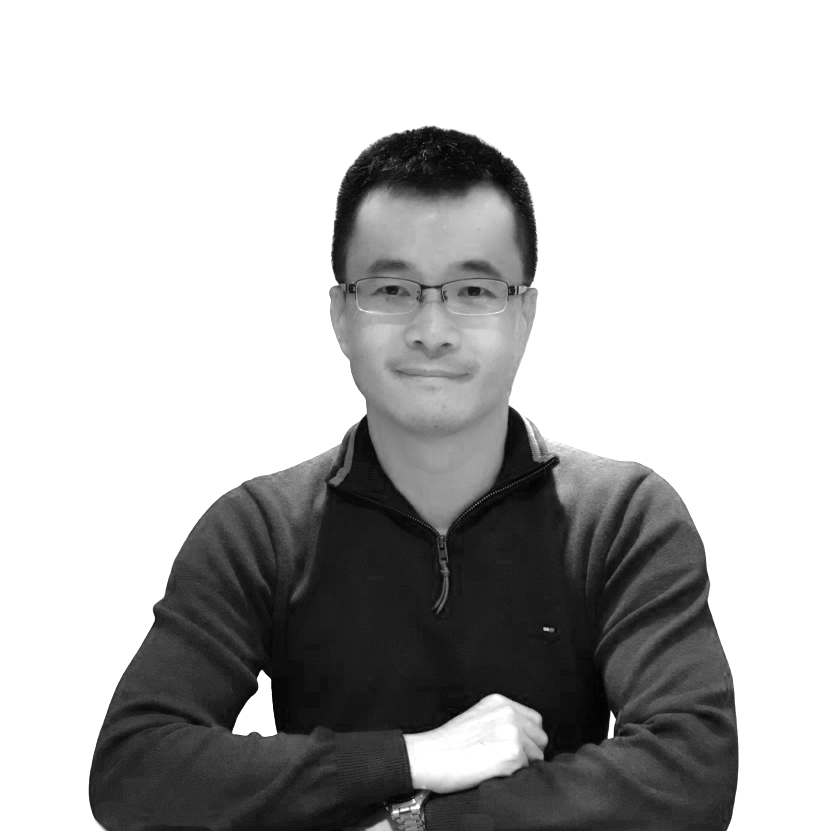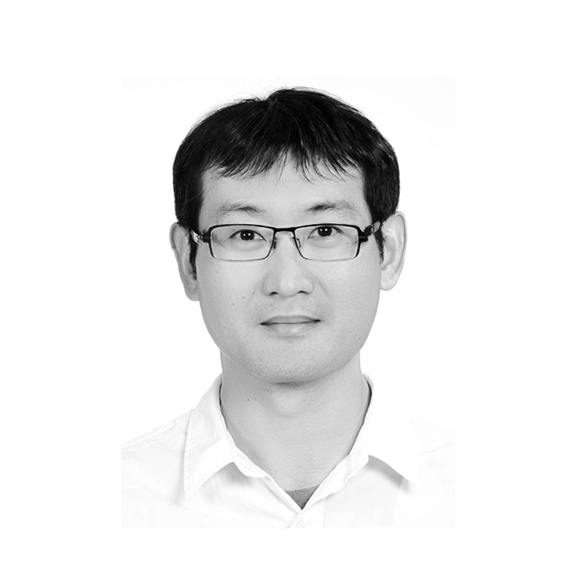生命的答案在培養皿裡嗎?在DNA的序列裡嗎?在神經元訊息的傳遞之間嗎?人體組織止於身體的外部邊界嗎?當今生物科技在重大技術上的突破,令人驚歎它的應用是如此強大,但其所引發的倫理道德争議也愈趨多樣,例如人類基因組解讀計劃對隱私權的侵犯、複製動物、複製人所引發的道德隱憂,乃至於基因改造作物與基因編輯技術CRISPR應用上的安全性疑慮。但就另一個層面而言,我們也有發現,人類、動物、植物的免疫系統,也是一種感官系統,除了感知、行為以外,也能與各種物種與環境進行不同程度的溝通,其方式與內容遠超過我們目前的理解。若能去除以「人為中心」的視角,而以人作為生命網絡的一部份,來探索生物科技可能發展,那它就不再只是關於基因演化革命、人工生命等,而是能以一個更廣義的生態生命系統的視野與高度,從各種視角切入,試圖去理解其中深藏的連結與可能的意義。因此,與其說生物科技藝術的可能性是在於跨域混生或異域結盟,不如說是透過多重逃逸路徑,建立另類的生物、醫學、材料、媒體、文化批判理論與藝術語法,超越因分科分流所導致的思想框架、斷裂與不理解,在既有的知識板塊之外,重新開啓辯論與理解,給出帶有異質性的思考、視域、轉譯、樣態與動能,企圖觸及目前身體感知與思考尚未抵達之處。而建置此生物藝術資料庫正是朝向最遠之處的第一步,從任何一個分類的子項進入,每一筆資料、每一件生物藝術案例分析、每一場推測思辯交鋒,都是一場未知的生物突變、革命、演化的起手式。
Is the answer to life in the petri dish, in the DNA sequence, or among the transmissions of neuron messages? Is the boundary of the human body and the world our body skin? With the vigorous development of biotechnology, the accompanying ethical and moral disputes have become more and more diverse, such as the Human Genome Project (HGP)’s infringement of genetic privacy, the moral issues of creating a clone of a human, animal, or genetically modified crops, and the safety concerns about the application of gene editing technology CRISPR. These major technology breakthroughs in biotechnology often make people marvel at how powerful biotechnology applications are, but also challenge the boundaries of the ethical controversy caused by biotechnology. But on another level, we have also discovered that the immune system of a human, animal, or plant is also a sensory system. In addition to perceiving and behaving, it is also capable of communicating with various species and the environment to varying degrees. How or what exactly does it communicate with others is still far beyond our understanding. The exploration of possible biotechnology development would be more than scientific research if we could detach ourselves from the human-centered perspective and see ourselves as one of the participants of the life network. As a part of the ecosystem, we as human beings can investigate the profound connections and meanings of this life network in a wide spectrum, as well as at a height of a more comprehensive perspective. Therefore, instead of seeing BioArt as a hybrid or an alliance of various disciplines, it would be better to see it as an ongoing process of constructing alternatives or escaping routes to depart the existed and divided disciplines. The process encompasses biotechnological, medical, social, cultural, and artistic praxis approaches. And the outcomes might fall out of the existed knowledge domains. However, the purposes are to initiate debates, new understandings, or heterogeneous thinking, expecting to lead to a place where we have not been there yet. The establishment of this BioArt database is the first step towards the furthest point. No matter which sub-item of classification, which piece of data, which case analysis, which speculative design you begin with, each of them will give rise to thought, revolution, and evolution.
— 計畫主持人 賴雯淑 —

賴雯淑
賴雯淑於美國愛荷華大學完成藝術設計碩士(MA、MFA)和藝術教育博士(Ph.D)學位,曾任美國愛荷華大學國際中心平面藝術設計師、美國德州Angelo State University助理教授。曾獲2011年傅爾布萊特專業藝術家獎助與2016年美國加州柏克萊大學訪問學者赴美研究。目前為陽明交通大學應用藝術研究所教授,也是陽明交通跨領域藝術團隊主持人、陽明交大文化研究國際中心研究員。透過藝術實踐、研究與教學,以藝術存有學視域出發,探索藝術的問題,思考人的意義。研究領域和藝術實踐包括:藝術介入、跨域藝術、質疑性設計、藝術詮釋學、幽靈敘事、圖文敘事、藝術家的書。
Wen-Shu Lai
MA, MFA, Ph.D. from University of Iowa
Professor, Institute of Applied Arts
National Yang Ming Chiao Tung University, Hsinchu Taiwan
Wen-Shu Lai attended the University of Iowa, where she had earned her MA and MFA degrees in Art, and Doctoral degree in Art Education. Lai was the primary graphic artist at International Programs, University of Iowa from 1996 to 2001. Later, she taught at Angelo State University in Texas as an assistant professor of art from 2001 to 2004. Currently she is a professor in the Institute of Applied Arts at the National Yang Ming Chiao Tung University (NYCU), Taiwan. She was a recipient of the Fulbright Grant for Art in 2008, and a visiting scholar at UC Berkeley, USA in 2016. She is also the leader of transArt NYCU team and a researcher of the International Institute for Cultural Studies at NYCU. Through art praxis, research and teaching, she raises artistic inquiries and ponders upon the ontological meaning of being in the world. Her art praxis and research interests are in Art Intervention, Cross-disciplinary Arts, Interrogative Design, Hermeneutic Theory, Phantom Narratives, Graphic Narratives, Narratives, and Artist’s Books.
賴雯淑
陽明交通大學應用藝術研究所教授
黃兆祺
黃兆祺於美國康乃爾大學完成分子生物與遺傳學博士(Ph.D)學位,曾任美國斯克里普斯研究所(Scripps Research Institute)博士後研究員、美國加州大學聖地牙哥分校(University of California San Diego)博士後研究員。目前為陽明交通大學生物科技學院分子醫學與生物工程研究所教授,也是陽明交通大學跨領域智能動態系統生物團隊主持人、陽明交通大學生物資訊中心研究員。透過分子生物、細胞生物學、光遺傳學等技術觀察神經細胞在外界環境與內在平衡發生改變後所產生的行為改變。在進行細胞行為觀察的過程中,嘗試將生冷的科學操作與藝術做結合,探索兩個領域結合的可能性(例如利用光控制細胞的移動來產生微小且獨特的圖像)。研究領域包括:神經發育、神經再生、神經退化性疾病、生物材料開發。
Eric Hwang
Eric Hwang graduated from Cornell University with the Ph.D. degree in the field of Molecular Biology and Genetics. Eric worked as a postdoctoral research fellow at the Scripps Research Institute and University of California San Diego. He is currently a professor in the Institute of Molecular Medicine and Bioengineering of the College of Biological Science and Technology at National Yang Ming Chiao Tung University (NYCU), Taiwan. He is the co-PI of Smart Platform of Dynamic Systems Biology for Therapeutic Development team at NYCU and a researcher of the Institute of Bioinformatics at NYCU. Using a combination of molecular biology, cell biology, and optogenetic techniques, his group attempts to understand the behavioral alteration of neurons upon external environment or internal homeostasis changes. Eric is also interested in the possibility of combining scientific manipulation and art creation (e.g. using light to control the movement of cells in order to generate unique microscopic patterns). His research fields include neuronal development, neuroregeneration, neurodegenerative diseases, and biomaterials.
黃兆祺
陽明交通大學分子醫學與生物工程研究所教授
蕭育源
蕭育源為陽明交通大學分子醫學與生物工程研究所教授,專長為分子生物學、結構生物學以及結構基礎藥物設計,研究各種與DNA修復及免疫調節相關的核酸結合蛋白之生理功能與醫藥應用。在漫長的生物科技研究工作中,意識到對於生命科學的熱愛、對於研究過程中美麗事物的感動總漸漸的被結果導向的工作要求或評鑑制度所抹滅,讓生物科技變的只是一種技術、一種工作。基於自身對生物科技的熱愛,所以想要結合生物科技與藝術來喚醒人們心中對生物之美以及在實驗過程中所體驗的種種美好。並藉由創作以及作品的呈現來將這份感動與美好刻劃在作者與觀眾心中。
Yu-Yuan Hsiao
Dr. Yu-Yuan Hsiao is a professor at the Institute of Molecular Medicine and Bioengineering, National Yang Ming Chiao Tung University. He specializes in molecular biology, structural biology, and structural-based drug design, focusing on the cellular functions and medical applications of various nucleic acid-binding proteins related to DNA repair and immune regulation. During the long research work of biotechnology, Prof. Hsiao realized that the love of life science and the touch of the beautiful things in the research process are always gradually wiped out by the result-oriented work requirements or evaluation system. It makes biotechnology boring and only used as a tool. He wants to combine biotechnology and art to awaken people’s love in biotechnology. Through the creation and presentation of Biotech-Art, touch and beauty will carve into people’s hearts.
蕭育源
陽明交通大學分子醫學與生物工程研究所教授
麥如村
麥如村為陽明交通大學生物科技學系助理教授,專長為生物化學、分子生物學、分子病毒學、以及腫瘤生物學,研究目標主要為探討引發癌症的分子機制,並藉以發展新穎性抗癌策略。因大學主修獸醫系,目前教授實驗動物相關課程,持續關注實驗動物在生物醫學研究過程中所衍生的動物福祉與動物權利議題,並逐漸將關懷的範疇擴展至生物科技發展所伴隨的倫理道德争議。期望能籍由介紹這些倫理議題的機會與藝術創作者合作,以藝術為媒介,提供生物科技領域研究學者進行社會人文的關懷與反思,並預想突破性生物科技發展可能造成的影響及爭議,同時喚起社會大眾對相關議題的重視。
Ru-Tsun Mai
Department of Biological Science and Technology, National Yang Ming Chiao Tung University Ru-Tsun Mai is currently an assistant professor in the Department of Biological Science and Technology at National Chiao Tung University (NCTU), Taiwan. His research expertise includes biochemistry, molecular biology, molecular virology, and cancer biology, focusing on exploring molecular mechanisms that cause cancer and thereby developing novel anti-cancer strategies. With a BS degree in veterinary medicine, he currently teaches laboratory animal-related courses at NCTU and continuingly pays attention to ethical and moral issues regarding animal welfare and animal rights arisen from the processes of biomedical research. Gradually, he expands the scope of interest to the ethical and moral issues derived from the development of biotechnology. By introducing these ethical discussions and cooperating with artist, he hopes to provide the opportunities for social care and reflection to researchers in the field of biotechnology, to envisage the possible impacts and controversies caused by major breakthroughs in biotechnology, and to arouse the public's attention to such issues with the assistance of artistic creations.
麥如村
陽明交通大學生物科技學系助理教授
謝啟民
謝啟民為陽明交通大學應用藝術研究所副教授,法國格勒諾柏綜合理工高等學院博士。創作研究持續關注於舞蹈、電腦動畫與資訊演算之跨域展演,現階段專注於演算美學與表演藝術的深度對話,重要作品2014年與編舞家吳秀蓮創作《無常》,2016年與鋼琴家辛幸純創作《拉威爾-加斯巴之夜》,2018年《最古老的風景》程序山水作品,2020年《歧異的風景》仿生作品。
HSIEH Chi-Min
HSIEH Chi-Min︱Associate Professor at the Institute of Applied Arts, National Yang Ming Chiao Tung University. He holds a PhD in Art, Science and Technologies from INPG Institut National Polytechnique de Grenoble in France.
Chi-Min has been focusing on interdisciplinary performances that integrate dance, computer graphics, animation and interactive technologies. At the moment, he engages in the advanced dialogue between algorithmic aesthetics and performing arts. His representative works include Impermanence created with choreographer Wu Shiu-Lien in 2014, Ravel’s Gaspard de la Nuit created with pianist Hsin Hsing-Chwen in 2016, The Ancient Paysage in 2018, and The Odd Paysage in 2020.
謝啟民
陽明交通大學應用藝術研究所副教授
林欣怡
林欣怡為國立清華大學藝術與設計學系副教授、陽明交大文化研究國際中心研究員。作品聚焦於閾限主體、多重文本、歷史聲語、身體書寫等主題,目前專注於感官民族誌、反身性紀錄片、實驗影像與新媒體藝術研究。作品曾於威尼斯雙年展台灣館、新加坡國際電影節、瑞士真實影展 Media Library 、韓國釜山短片影展、高雄電影節、台灣國際女性影展、南方影展、香港獨立電影節等中放映展出。
LIN, Hsin-I
LIN, Hsin-I is a film-maker and an associate professor at the Department of Arts and Design, National Tsing Hua University and a researcher of the International Institute for Cultural Studies at NYCU. She is the director of the award-winning films Letter #69 (2016), 3 Islands (2015). Her scholarly interest is focused on the visual anthropology and the intersection between new media, experimental and sensory ethnographic film and art practices. LIN is also the researcher of the International Center for Cultural Studies, ICCS_NYCU.
Along with her intention to develop new issues, she has turned toward reflexive ethnography documentary, reportage theatre, and the third voice films. She has screened films at multiple film festivals and museums including the Singapore International Film Festival, Busan International Short Film Festival, Hong Kong Independent Film Festival, Media Library, Visions du Réel International Film Festival NYON, Urban Nomad Film Fest, Women Make Waves Film Festival, Kaohsiung Film Festival, South Taiwan Film Festival, and various international film festivals and museum.
林欣怡
國立清華大學藝術與設計學系副教授
鄭昌杰
鄭昌杰於2007年和2014年取得國立交通大學資訊科學工程所的碩士與博士學位。現為國立陽明交通大學資訊科技服務中心的助理教授。他的主要研究項目在電腦視覺、影像處理和生醫成像。 他曾經提出了一種以追蹤特徵點為基礎的影像對齊方法,來提高納米解析度的電腦斷層掃描影像品質。他還使用以 CNN 的學習模型來提高同步輻射成像的品質。 他正在研究AIoT(AI+IoT)並使用重力感測器設計了穿戴式設備,用於分類人體行為以及識別手寫簽名。 他目前也在研究如何將AioT應用在藝術方面。他期望結合電腦視覺和物聯網可以帶來令人驚嘆的藝術作品。
Chang-Chieh Cheng
Chang-Chieh Cheng received his M.S. and PhD degrees in Computer Science and Information Engineering from National Chiao Tung University in 2007 and 2014, respectively. He is currently an Assistant Professor at the Information Technology Service Center, National Yang Ming Chiao Tung University, Taiwan. His primary research projects focus on computer visi, image processing, and biomedical imaging. He proposed an image alignment method with feature tracking to improve the quality of nanoscale tomography. He also used a CNN-based learning model to improve the quality of synchrotron radiation imaging. He is studying AIoT (AI + IoT). He used G-sensors to design a wearable device to classify human behavior and identify the handwritten signature. He is also studying using AIoT in art. He expects that combining computer vision and IoT can bring an astonishing artwork.
鄭昌杰
國立陽明交通大學資訊技術服務中心助理教授
顧廣毅
顧廣毅為國立陽明交通大學應用藝術研究所暨說故事與多媒體跨域學程的兼任助理教授。2021年起於英國雪菲爾哈倫大學攻讀博士學位,研究主題是藝術、設計與生物科學的跨領域研究。他也是 TW BioArt 台灣生物藝術社群共同創辦人,活躍於荷蘭與台灣從事生物藝術創作工作。碩士畢業於荷蘭恩荷芬設計學院(Design Academy Eindhoven)社會設計研究所(MA, Social Design)、國立陽明大學臨床牙醫學研究所、實踐大學媒體傳達設計研究所,大學畢業於高雄醫學大學牙醫學系;具有牙醫師、生物藝術家以及推測設計師等多重身分。他試圖拓展藝術、設計與科學結合的可能性,作品主要專注於臨床醫學、人類身體、人與其他物種的關係以及性別議題,嘗試藉由藝術實踐與設計方法去探索科學領域中的倫理問題,並藉此思考科技、人類個體和環境之間的關係。
Kuang-Yi Ku
Kuang Yi Ku is a part-time assistant professor at the Institute of Applied Arts, as well as the Storytelling & Multimedia Cross-Disciplinary Program at NYCU Taiwan. In 2021, he begins his doctoral journey at lab4living (design and health research lab) in Sheffield Hallam University in the UK. His research topic is “Facing the Biological Divide: collaborations between art, design and bioscience”. He is an active and internationally well known bio-artist based in the Netherlands and Taiwan.He has graduated with triple master degrees with social design from Design Academy Eindhoven, dentistry from National Yang-Ming University and communication design from Shih Chien University. He is a bio-artist, social designer and former dentist. He also co-founded TW BioArt (Taiwan bioart community) to stimulate the fields of BioArt and Science+Art in Taiwan. His works often deal with human body, sexuality, interspecies interaction and medical technology, aiming to investigate the relationships among technology, individual and environment.
顧廣毅
陽明交通大學應用藝術研究所暨說故事與多媒體跨域學程助理教授
研究助理、資料編輯|
王竣恆、王書帆、何瑞祐、李庭儒、呂彦青、吳玶萭、柯祖皓、

